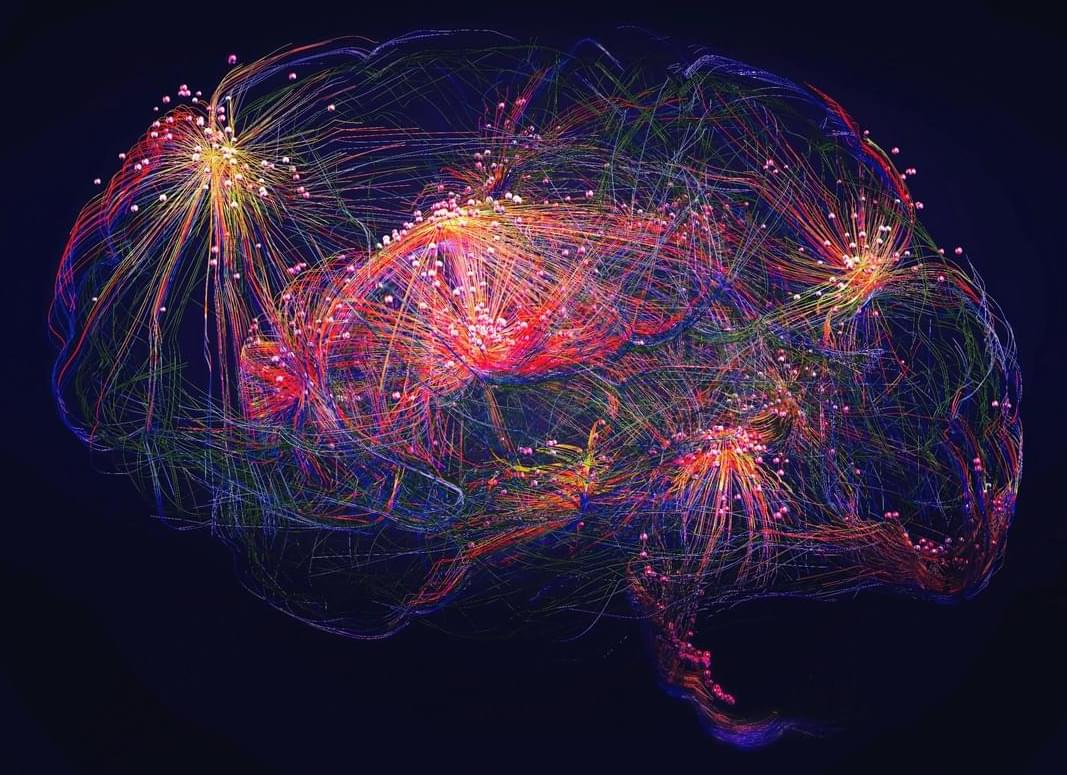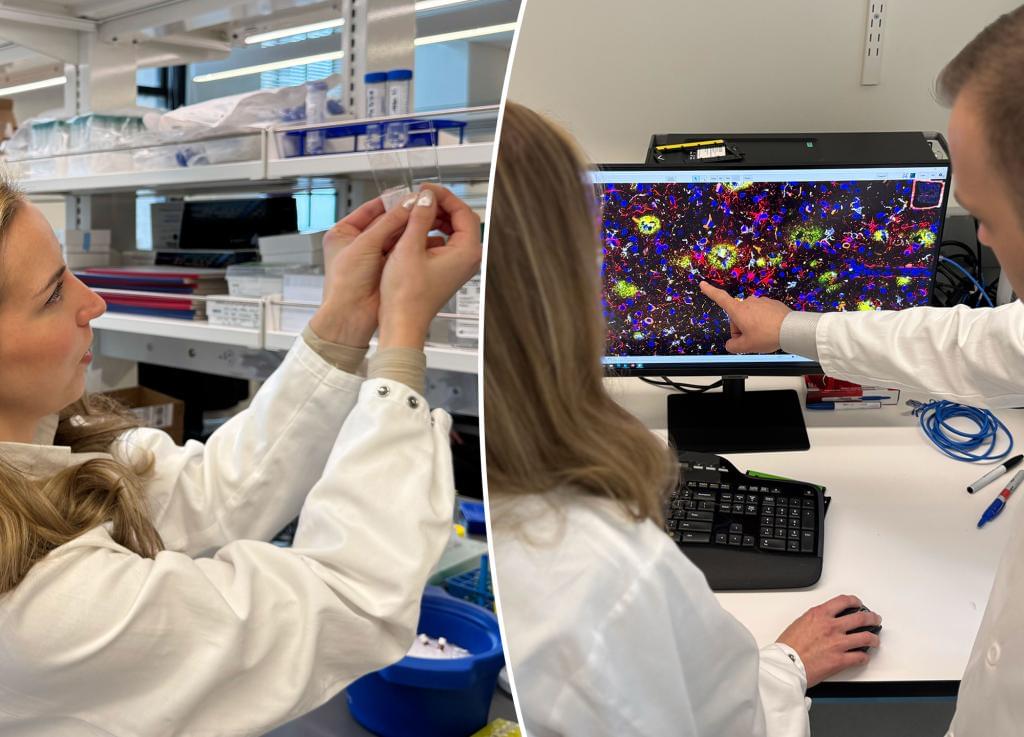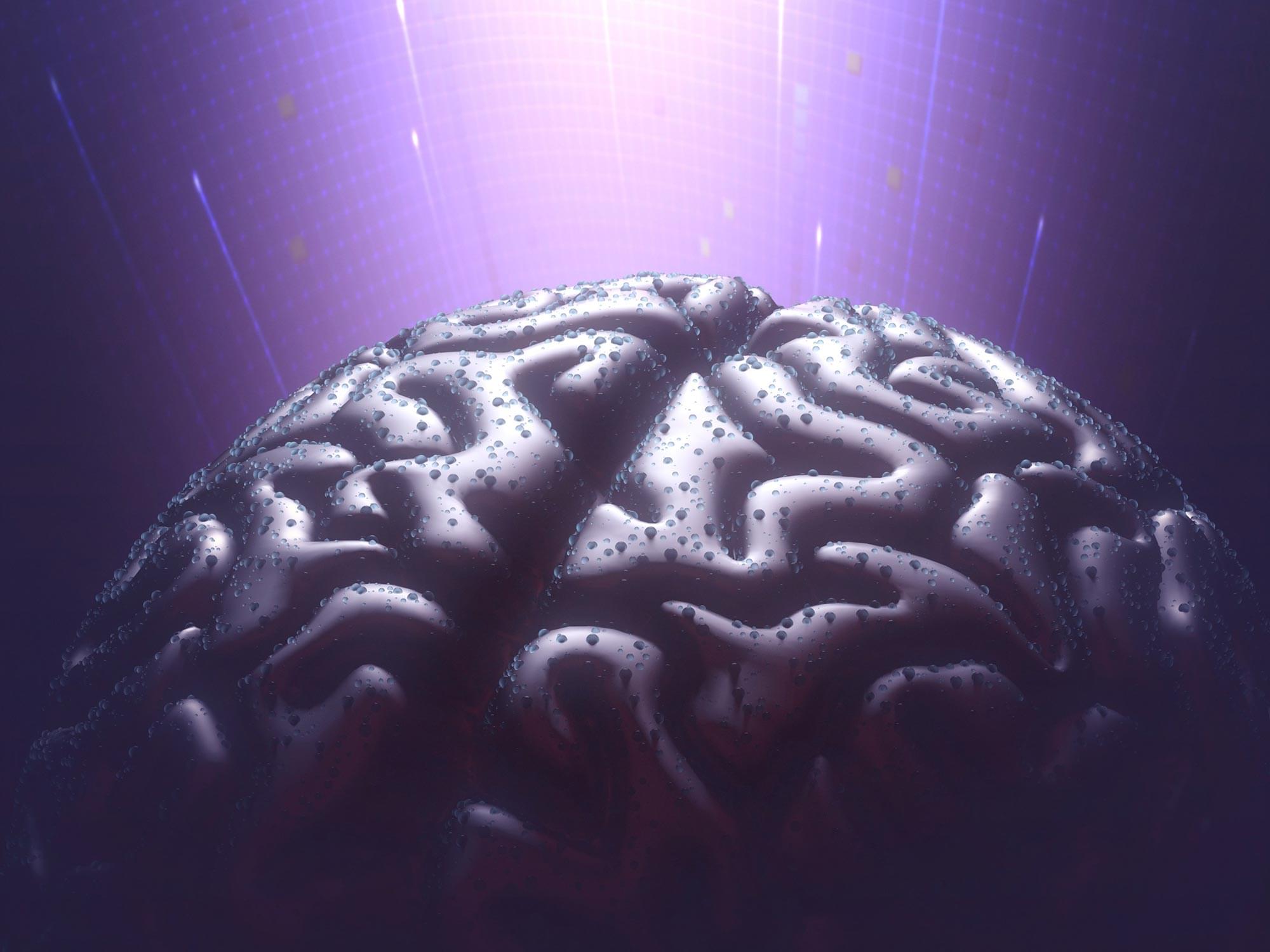From brain implants that allow paralyzed patients to communicate to the wearable devices enhancing our capabilities, brain-computer interfaces could change the way we use our minds forever. (Source: Bloomberg)



A stressful life can leave marks on our genetic code, some of which can even be passed on to our children. A study now reveals how the biological impact of trauma on a mother persists long after the violent acts themselves have passed.
The international team of researchers demonstrate the physical mechanisms behind intergenerational trauma in humans, explaining why people with a family history of adversity are more prone to mental health conditions like anxiety and depression, despite not having experienced the adverse events themselves.
The researchers analyzed DNA collected from 48 Syrian families across three generations. These families included grandmothers or mothers who while pregnant had fled the 1982 siege and massacre in Hama or the 2011 armed uprising – both part of the ongoing Syrian civil war.
On the weekend Elon Musk provided a live demonstration of Neuralink’s technology using pigs with surgically implanted brain monitoring devices. The Australian Society for Computers & Law invited Dr Michelle Sharpe (Victorian Barrister) and Dr Allan McCay (Lecturer and Author on Neurotechnology and the law) to explore the legal and ethical implications of technology that interfaces between the human brain and computer devices.
The future of warfare starts in your mind. Understand how Neuroscience, Technology/AI and the OODA loop affects your flow. The world is changing, and cognitive warfare is at the forefront. In our latest podcast episode, we sit down with James Giordano, PhD, a Navy veteran and an expert in neurocognitive science, to delve into the world of cognitive warfare.
Stay in the Loop: https://www.aglx.com/newsletter-signup-north-america.
From the impact of emotions on decision-making to the integration of artificial intelligence and human cognition, this episode challenges your perspective on the battlefield. Join us as we explore the ethical implications of genetic modifications, the transformative effects of psychedelics, and the complexities of data usage in the digital age. Get ready to reimagine the relationship between technology, culture, and language. Don’t miss out on this opportunity to gain valuable insights from our thought-provoking conversation with Dr. Giordano. Tune in now to stay ahead of the curve on the evolving landscape of warfare!
00:00 — Understanding the OODA loop: A Neuroscience Perspective.
09:11 — Exploring Fifth Generation Warfare and Liminal Warfare.
16:06 — The Long Game: China’s Strategic Plan.
22:19 — Understanding Cognitive Warfare and Human-Machine Teaming.
25:52 — The Evolution of Human-Machine Teaming.
29:11 — Human Involvement in AI Decision Making.
36:01 — The Ethics of Paternalistic AI Systems.
40:43 — Technology’s Impact on Cognitive Engagement.
45:13 — Exploring Technologies for Human Performance Enhancement.
55:59 — Diving Into Attacking Mode and Ethics.
56:24 — Hacking the Human Genome.
59:37 — Epigenetic Modification and Phenotypic Shift.
1:04:54 — The Psychedelic Revolution.
1:11:18 — Revisiting Alcohol and Caffeine: Benefits and Burdens.
1:19:18 — Impact of Technology on Cognitive Capacity.
1:23:33 — Information Overload and Burdens.
1:27:02 — Ownership and Security of Personal Data.
1:31:56 — Identifying Predispositional Traits.
1:33:49 — Data Manipulation and Biometrics.
1:40:13 — Cultural Impact of Technology.
1:48:55 — The Role of Education in Integrating Science, Technology, Ethics, and Policy.
1:54:30 — Major Threats and Concerns in Today’s World.
Are you curious about the future of neurotechnology, learn more about brain implants and brain computer interfaces, commonly referred to as BCI’s?
We will look at that as well as the potential of neurotechnology and its implications for society? In this video, we’ll explore the ethical and societal implications of neurotechnology, from personal identity to privacy and security. We will also look at how neurorights can help protect us now as well as into the future. Join us on this journey to understand the complex ethical considerations that come with advances in neuroscience!

Vertical columns How the Brain Maps Jaw Movements: A Hidden Architecture of Motion.
Our brains contain intricate maps that guide every voluntary movement we make, from reaching out to grab a cup to the delicate motions involved in speaking or chewing. But how exactly are these maps organized, and what role do different types of brain cells play in shaping them?
A new study dives deep into the orofacial motor maps—the brain’s blueprint for controlling jaw movements—revealing a surprising level of organization. Researchers used optogenetics, a technique that activates specific neurons with light, to map out how different classes of excitatory neurons contribute to jaw motion in mice. What they found was remarkable: rather than a single unified map, the motor cortex is divided into distinct, genetically defined modules, each governing jaw movement from different brain regions, including sensory, motor, and premotor areas.
These modules don’t act in isolation. When one was stimulated, activity rippled across the brain, converging in the primary motor cortex, the region that directly controls movement. What’s more, when the mice learned new motor skills—such as refining their licking motion—some of these modules expanded, adapting to support the learned behavior.
This research suggests that voluntary movement isn’t just dictated by a single command center. Instead, a network of specialized cell groups collaborates across different parts of the brain, dynamically adjusting as we learn new motor skills. Understanding this fine-tuned motor map could have implications for treating movement disorders or even advancing brain-computer interfaces in the future.
Scientists have identified previously unknown neural modules in the brain that control movement and adapt during skill learning. Their findings challenge long-held ideas about how the brain organizes movement.

Scientists have long been racking their brains for ways to treat Alzheimer’s disease, the most common type of dementia.
Turns out that the answer may lie within our own brains. Researchers from Northwestern University suggest that enhancing the brain’s immune cells may better equip them to clear out harmful clumps of the toxic protein amyloid beta, a hallmark of Alzheimer’s.
“Our study is highly novel because we had the rare opportunity to analyze one of the largest post-mortem brain cohorts of Alzheimer’s patients treated with amyloid-targeting drugs — similar to those now approved by the FDA for Alzheimer’s disease,” lead author Lynn van Olst said.
Dr Peter Sjöstedt-Hughes is a Philosopher of Mind and Metaphysics who specializes in the thought of Whitehead, Nietzsche, Bergson, and Spinoza—and in fields pertaining to panpsychism, pantheism, mental causation, and altered states of consciousness. He is a lecturer at The University of Exeter. Peter is the author of Noumenautics (2015), Modes of Sentience (2021), co-editor and contributor of Bloomsbury’s Philosophy and Psychedelics (2022), the TEDx Talker on ‘psychedelics and consciousness’, and he is inspiration to the recreation of inhuman philosopher Marvel Superhero, Karnak.
TIMESTAMPS:
0:00 — Introduction.
1:00 — The Mind-Body Problem.
4:00 — Idealism vs Panpsychism.
6:45 — Defining Consciousness.
15:30 — Spinozism & Whiteheadian Panpsychism.
19:30 — Kastrup’s Analytic Idealism.
24:07 — Naïve Realism.
29:30 — Huxley, James, Whitehead, Nietzsche, Spinoza, Schopenhauer, Bergson & Kant.
35:15 — What is the Philosophy of Psychedelics?
41:38 — Evidence of Psychedelic Research.
45:35 — Psychedelics & Consciousness.
53:10 — Defining Psychedelics.
59:50 — Metaphysical Shifts & Consensus Reality.
1:04:30 — Peter’s most Psychoactive Experience.
1:09:40 — Psychedelic Research Criticism.
1:13:14 — From Therapeutics to Metaphysics.
1:16:18 — Mind At Large & Exogenous Mind Theory.
1:23:08 — Free Will.
1:27:40 — Panpsychisms.
1:35:40 — Peter’s Philosophical Heroes.
1:40:02 — Final Thoughts.
1:41:10 — Conclusion.
EPISODE LINKS:
Peter’s Lecture: • A Synopsis of Spinoza’s Metaphysics |…
Peter’s Website: https://www.philosopher.eu/
Peter’s X: / petersjostedth.
Peter’s Instagram: / petersjostedth.
Peter’s LinkedIn: / dr-peter-sjöstedt-hughes-2b7a2927
Peter’s BlueSky: https://bsky.app/profile/petersjosted…
Peter’s YouTube: / @ontologistics.
Peter’s Analytic Idealism Critique: https://www.feedyourhead.blog/p/fligh…
CONNECT:
Website: https://tevinnaidu.com.
Podcast: https://creators.spotify.com/pod/show…
YouTube: / mindbodysolution.
Twitter: / drtevinnaidu.
Facebook: / drtevinnaidu.
Instagram: / drtevinnaidu.
LinkedIn: / drtevinnaidu.
Disclaimer: The information provided on this channel is for educational purposes only. The content is shared in the spirit of open discourse and does not constitute, nor does it substitute, professional or medical advice. We do not accept any liability for any loss or damage incurred from you acting or not acting as a result of listening/watching any of our contents. You acknowledge that you use the information provided at your own risk. Listeners/viewers are advised to conduct their own research and consult with their own experts in the respective fields.
#PeterSjöstedtHughes #Psychedelics #Metaphysics #Consciousness

A study of artificial human and chimpanzee nerve cells revealed how faster-evolving DNA enables neurons to develop increasingly complex brain power.
How did humans evolve brains capable of complex language, civilization, and more?
The answer may lie in exceptional DNA. Scientists at UC San Francisco discovered that certain regions of our chromosomes have evolved at remarkable speeds, giving us an advantage in brain development over apes. However, this rapid evolution may also make us more susceptible to uniquely human brain disorders.